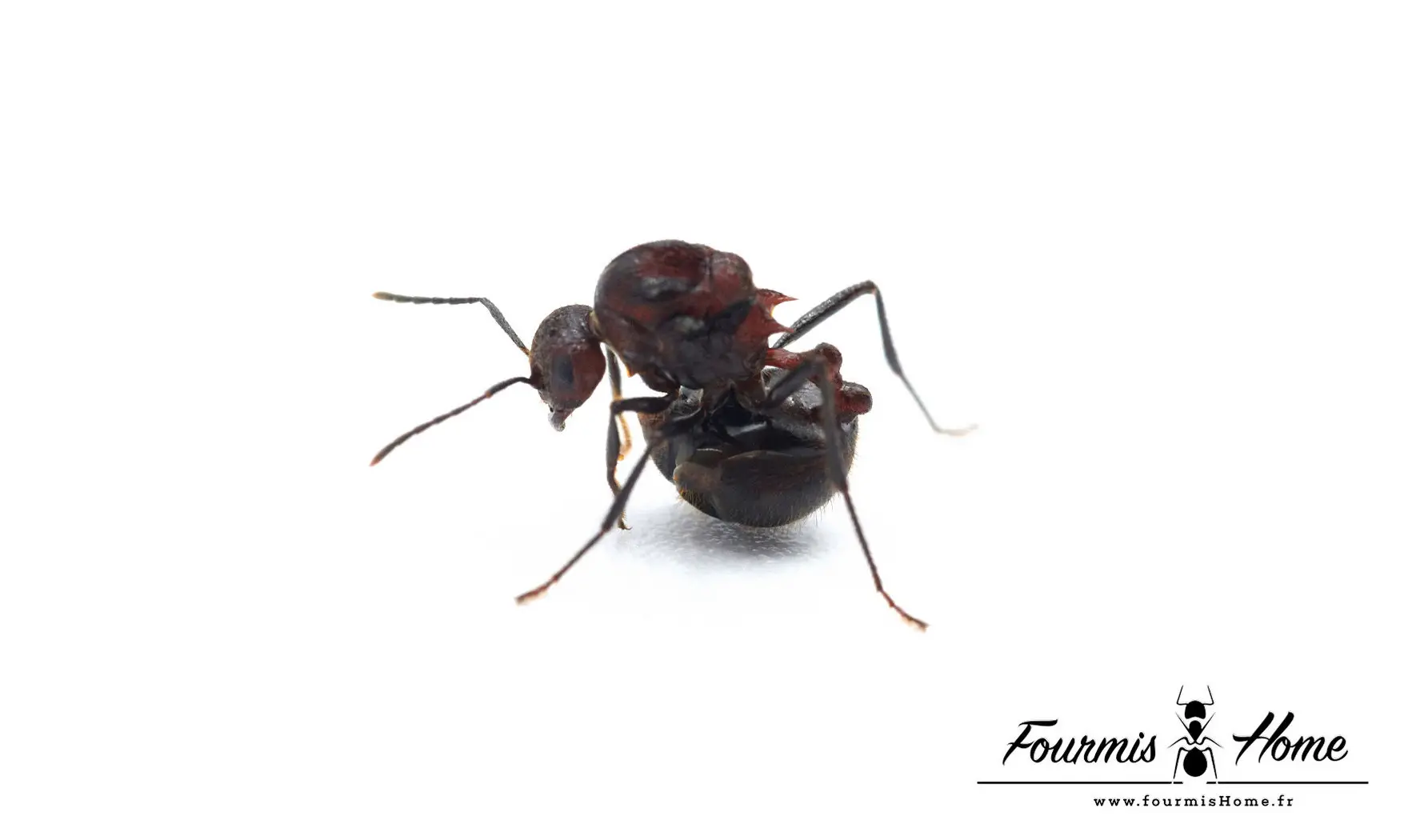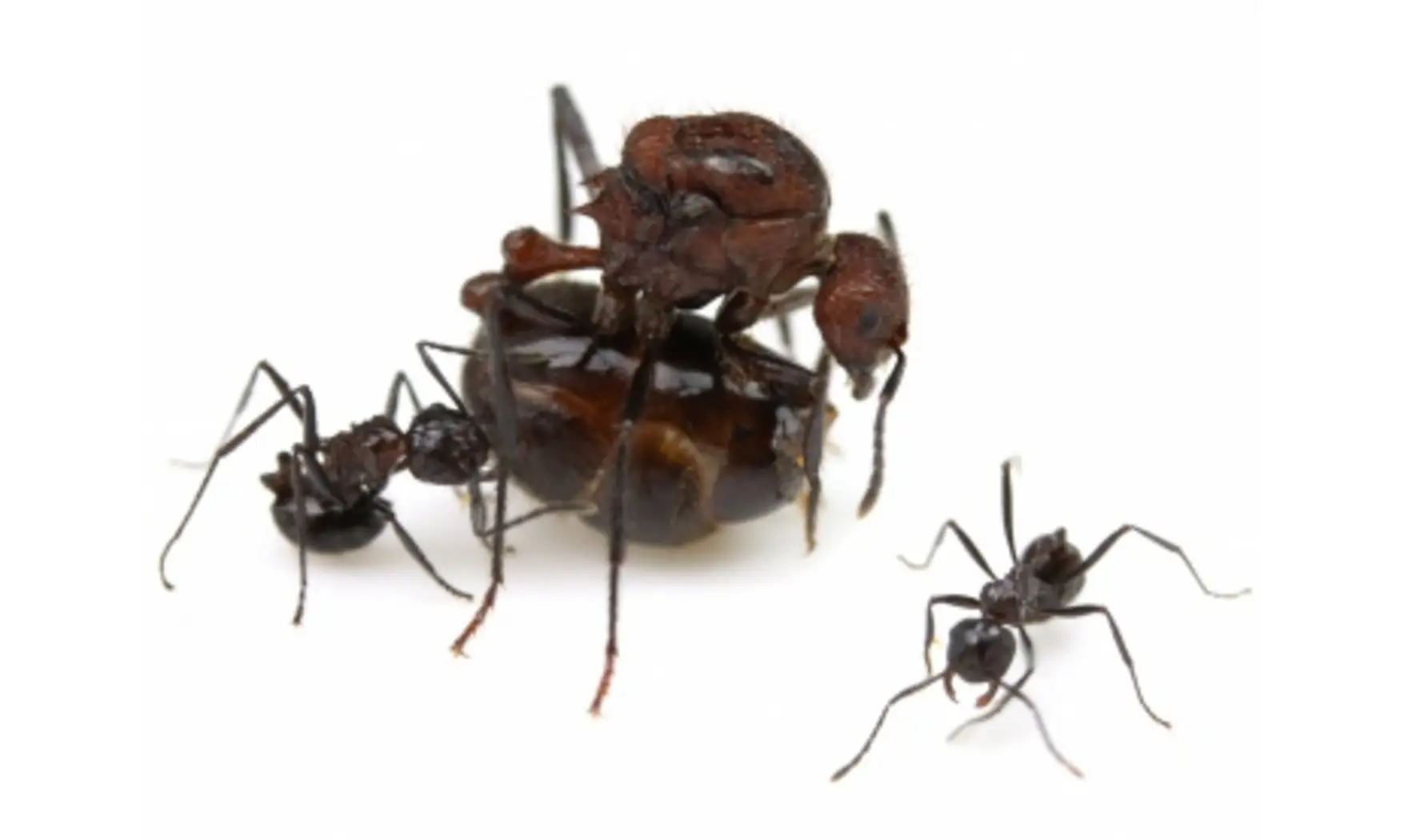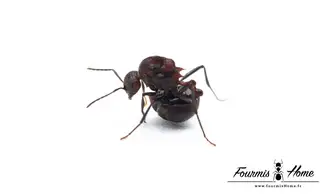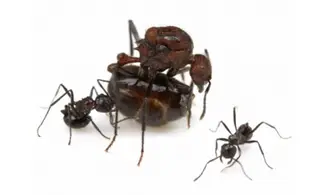



Myrmicaria natalensis
Reference : MFOUR-310
49.90€
0 in stock
Latin name: Myrmicaria natalensis
Taxonomy: Subfamily: Myrmicinae Tribes: Solenopsidini
Breeding level: Intermediate
Geographical distribution: Mozambique, South Africa, Tanzania, Kenya, Zimbabwe, Angola, Namibia
Habitat: Moist forest
Colony form: Monogyne
Queen: Size: 12 - 13mm Color: Head and red chest, black gastre
Worker: Size: 5 - 8mm Color: Head and thorax red, black gastre
Soldier: No
Male: Size: 8mm Color: Black
Food: Mainly insectivorous, such as mealworms, flies, mosquitoes, crickets and honeydew.
Humidity: Hunting area: 50 - 50% Nest: 70 - 80%
Temperature: Hunting area: 21 - 28 ° C Nest: 22 - 26 ° C
Hibernation: Winter break from November to early March at room temperature.
Nest type: Plexiglas nest, nest with tubes, reconstituted stone nest.
Description: The peculiarity of this species when it feels threatened raises the abdomen upwards and releases a secretion of defense.
Development: Swarming from late November to December.
Foundation: Set in a cloister (without food) Development: 45 days from egg to worker (depending on temperature)
Size of the colony: Several thousand individuals, the queen can reach the age of 15 years.
Taxonomy: Subfamily: Myrmicinae Tribes: Solenopsidini
Breeding level: Intermediate
Geographical distribution: Mozambique, South Africa, Tanzania, Kenya, Zimbabwe, Angola, Namibia
Habitat: Moist forest
Colony form: Monogyne
Queen: Size: 12 - 13mm Color: Head and red chest, black gastre
Worker: Size: 5 - 8mm Color: Head and thorax red, black gastre
Soldier: No
Male: Size: 8mm Color: Black
Food: Mainly insectivorous, such as mealworms, flies, mosquitoes, crickets and honeydew.
Humidity: Hunting area: 50 - 50% Nest: 70 - 80%
Temperature: Hunting area: 21 - 28 ° C Nest: 22 - 26 ° C
Hibernation: Winter break from November to early March at room temperature.
Nest type: Plexiglas nest, nest with tubes, reconstituted stone nest.
Description: The peculiarity of this species when it feels threatened raises the abdomen upwards and releases a secretion of defense.
Development: Swarming from late November to December.
Foundation: Set in a cloister (without food) Development: 45 days from egg to worker (depending on temperature)
Size of the colony: Several thousand individuals, the queen can reach the age of 15 years.

